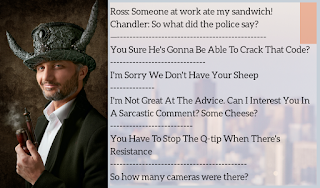| Edited by Lifesuggests |
“Maybe I should dash into Starbucks, just to drift off in the morning, picturing my friends chuckling at the ridiculousness of me obviously dozing off.”
Absolutely!
And if I’m not mistaken, you’ve come across sarcastic humor in social media and perhaps used it yourself without any aim to offend anyone.
However, it can indeed sound odd when applied in front of someone who gradually fails to get it.
First, let’s clarify what sarcasm truly means.
According to the dictionary:
It is a manner of employing words that contradict your actual intent to either offend someone or mock them.
In contemporary terms:
In a more intense sense: It’s a way to convey your discontent humorously, making the other person appear foolish instead of you after the comment.
Or
For Entertainment:
A comment that reflects verbal irony aimed to amuse without disturbing anyone’s tranquility.
The illustration below showcases excellent examples:
 |
| Text Source: Yourdictionary.com |
Distinction between sarcastic humor and sarcastic insults:
I’m very much interested in appreciating sarcasm in a fun way, but I’ll pass on insulting others.
For instance:
Humorous sarcasm:
1) When one door shuts, another one opens… Or you can simply open that closed door; that’s how they function.
2) Janice: Wow, what a small world!
Chandler: And yet I never seem to bump into Beyonce.
3) Ross: Someone at the office devoured my sandwich!
Chandler: What did the authorities say?
 |
| JJ Jordan | Unsplash |
Clever sarcastic insults:
1) It’s a wonder how you’ve lasted this long without a brain—truly a marvel of modern science.
2) Regardless of what you might think, being courteous hasn’t gone out of style.
How should we respond to it?
Anyone can throw sarcasm your way if you allow them to.
People deploy sarcasm when they notice an error on your part or simply want to joke around.
So here’s how to respond…
1) Sarcastic remark = Hahaha
Laugh it off, as there’s no reason to take it personally.
2) Sarcastic remark = return a witty comeback
A clever response can enhance the interaction and highlights your sharp wit.
 |
| Tatiana Zanon | Unsplash |
3) Sarcastic remark = just walk away.
If someone keeps throwing sarcasm at you repeatedly about a single topic, it would be wise to step back from that person.
(Bosses often resort to sarcasm if they interact kindly with you)
Reasons to use it:
- To introduce humor into a conversation.
- To subtly express frustration while maintaining a light tone.
- To reply to someone’s insults thoughtfully.
- To alleviate your anxiety through humor.
- To engage someone with a clever comment.
Why you should refrain from using it?
Sarcasm can represent the peak of cleverness or the nadir of wit, varying greatly among individuals and their preferences.
If the recipient doesn’t appreciate your sarcastic tone, you should reconsider using it. Children may find it confusing, while elderly individuals may not take it lightly.
If you inquire whether sarcasm is an emotion, I would certainly argue against that; it merely serves as a means to convey feelings in situations where direct expression feels awkward.
In today’s world, some individuals simply wish to showcase their cleverness as a way to bond or distance themselves in relationships.
Use sarcasm sparingly in your interactions (just as excess seasoning can spoil a delightful dish).
Feel free to let me know in the comments if I’ve overlooked anything (I read them all).

